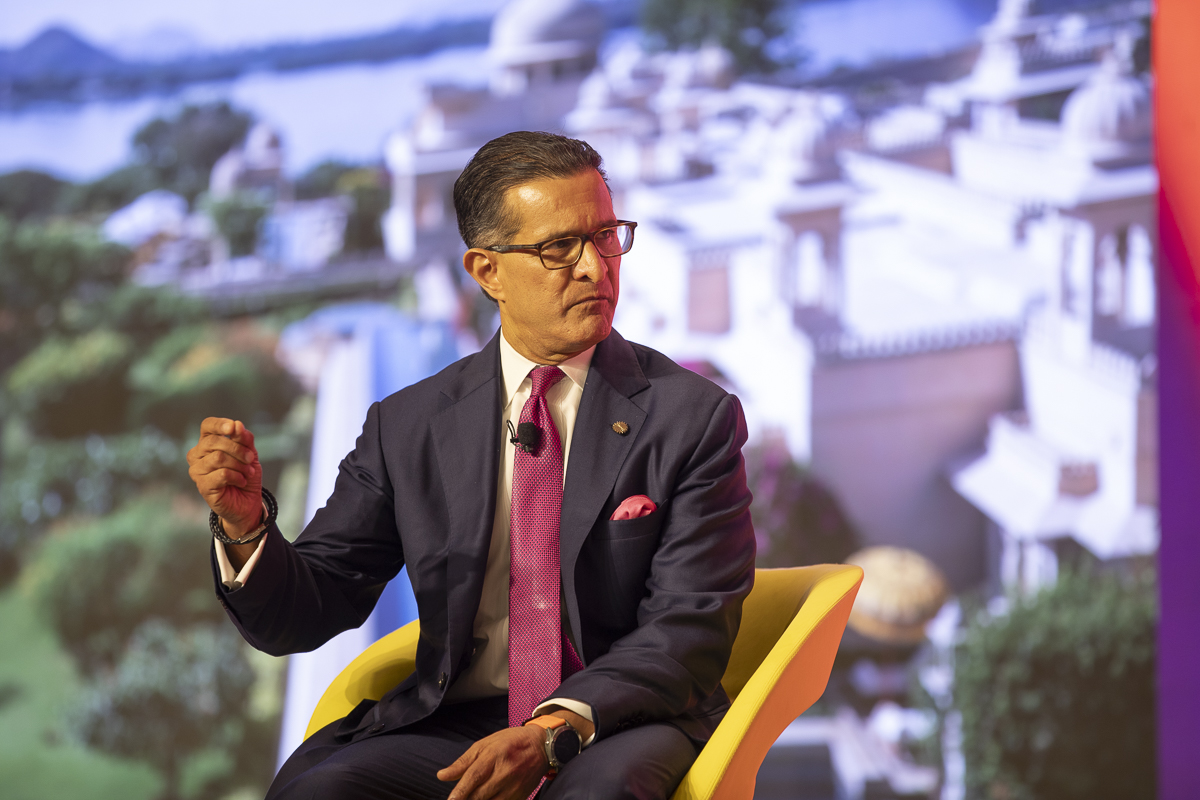Oberoi Group CEO Vikram Oberoi on India's Future in Hospitality - Full Video

Skift Take
Vikram Oberoi, CEO and managing director of the Oberoi Group, knows luxury inside and out. Oberoi-branded hotels — recently ranked as "world's best" by Travel and Leisure readers — are quite familiar to Oberoi himself: He spent the first decade of his life in the Oberoi Grand, Kolkata, before a stint in the Oberoi, New Delhi.
Oberoi attributes the company's success to responding to guest feedback, emphasizing quality over quantity, and considering employee needs. Oberoi sat down with Sean O'Neill, Senior Hospitality Editor at Skift, at the Skift India Summit 2024 to discuss the company's future, competitive advantages, policies affecting hotels, accessibility, and what's in store for India's economy.
Here are some of Oberoi's thoughts on India's future in hotels, shortened for clarity. Watch the full interview below.
https://youtu.be/u-fY6ILVW08 The Oberoi Group plans to open 50 hotels by 2030.Oberoi: Our vision for 2030 is to expand both the Oberoi brand and the Trident brand. We'd like to open 50 new hotels by 2030, so that's what we're focused on delivering. Some of the hotels will be
